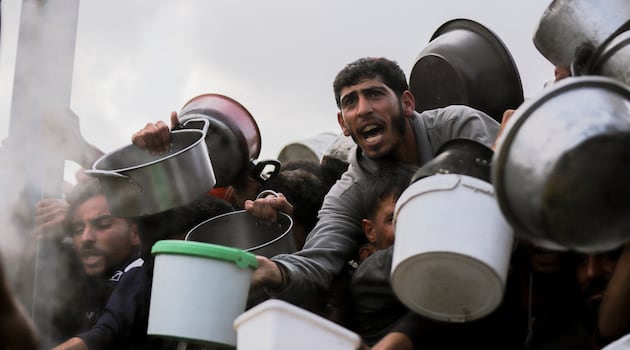
The Israeli cabinet approved the Gaza ceasefire and hostage release deal at a meeting on Friday night. It paves the way for the ceasefire to go into effect on Sunday.
However, since plans for the ceasefire proceeded over the past few days, Israeli warplanes kept up heavy strikes on Gaza, and medics and rescue authorities said at least 104 Palestinians, including 58 women and children, had been killed since the deal was announced on Wednesday.
The war between Israeli forces and Hamas has razed much of heavily urbanised Gaza, killed more than 46,000 people, and displaced most of the enclave’s pre-war population of 2.3 million several times over, according to local authorities.
In a highly unusual development, the Israeli cabinet meeting took place after the start of Shabbat, the Jewish Sabbath, which began at sunset on Friday. Religiously observant ministers, with rabbinic backing, justified breaking the strict laws of Sabbath observance because in Judaism the sanctity of life takes precedence and it was argued that delaying the ceasefire, even by one day, could endanger the lives of the hostages.
Earlier on Friday, Israel’s security cabinet voted to endorse the ceasefire.
Ministers from the two far-right parties in the coalition voted against it. They oppose the ceasefire because it includes releasing hundreds of Palestinian prisoners, allows hundreds of thousands of Palestinians to return to northern Gaza and forces Israeli troops to leave the strategically important Philadelphi corridor, which runs along the Gaza-Egypt border.
Otzma Yehudit (Jewish Strength), led by national security minister Itamar Ben-Gvir, is now expected to quit the government. The other far-right party, the Religious Zionist party, led by finance minister Bezalel Smotrich, says it will also leave the government if Israel does not resume the war at the end of the first phase of the ceasefire in six weeks.
Israel published a list of the first group of 95 Palestinian security prisoners it will release as part of the deal, to allow legal appeals before the start of the ceasefire. The high court has in the past has always rejected such appeals.
On Saturday, according to the terms of the ceasefire, Hamas is expected to release the names of three hostages due to be released on Sunday — widely reported to be three female soldiers who were seized from a base on the Gaza border during the October 7th, 2023 Hamas-led attack, in which 1,200 people were killed and more than 250 hostages taken, according to Israeli tallies.
The army has prepared three sites close to the Gaza border where the hostages will be received by Israel Defense Forces representatives, including doctors, psychologists, and mental health officers. From there, they will be taken by helicopter to hospitals to be reunited with their families.
In the first phase of the ceasefire, which is to last for 42 days, Israeli troops will withdraw from Gaza population centres and 33 hostages will be released in multiple stages, including women, female soldiers, children, men over 50, and those with medical or humanitarian needs. Most of the 33 hostages on the release list are believed to be alive, though Hamas has not yet confirmed the condition of those set for release — specifically, who among them remains alive and who has not survived.
Second-phase negotiations are set to commence on Day 16 of the ceasefire. The remaining living hostages, including captured soldiers, are to be set free during phase three and Israel’s military redeployment will be completed, except for a narrow buffer zone along the Gaza border with Israel.
The third stage will be marked by the return of all the bodies and the start of the large reconstruction effort in the coastal enclave.
Jewish settlers are angry over the fact that hundreds of what they describe as Palestinian militants, due to be released under the ceasefire, will return to their West Bank homes. To appease them, defence minister Yisrael Katz on Friday released all five Jewish administrative detainees from custody.
Administrative detention enables detention without trial and is used mainly against Palestinians, and occasionally settlers, suspected of terror offences. — Additional reporting: Reuters









